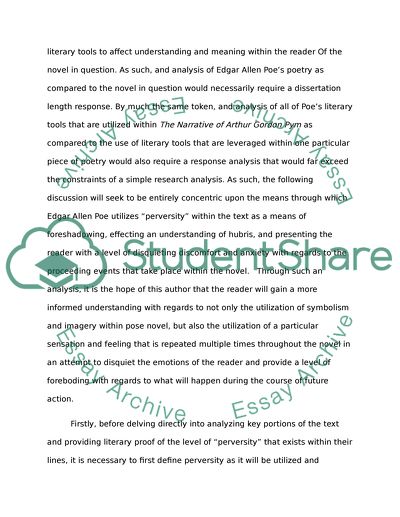Cite this document
(“THE NARRATIVE OF ARTHUR GORDON PYM Essay Example | Topics and Well Written Essays - 2500 words”, n.d.)
Retrieved from https://studentshare.org/literature/1498445-the-narrative-of-arthur-gordon-pym
Retrieved from https://studentshare.org/literature/1498445-the-narrative-of-arthur-gordon-pym
(THE NARRATIVE OF ARTHUR GORDON PYM Essay Example | Topics and Well Written Essays - 2500 Words)
https://studentshare.org/literature/1498445-the-narrative-of-arthur-gordon-pym.
https://studentshare.org/literature/1498445-the-narrative-of-arthur-gordon-pym.
“THE NARRATIVE OF ARTHUR GORDON PYM Essay Example | Topics and Well Written Essays - 2500 Words”, n.d. https://studentshare.org/literature/1498445-the-narrative-of-arthur-gordon-pym.


